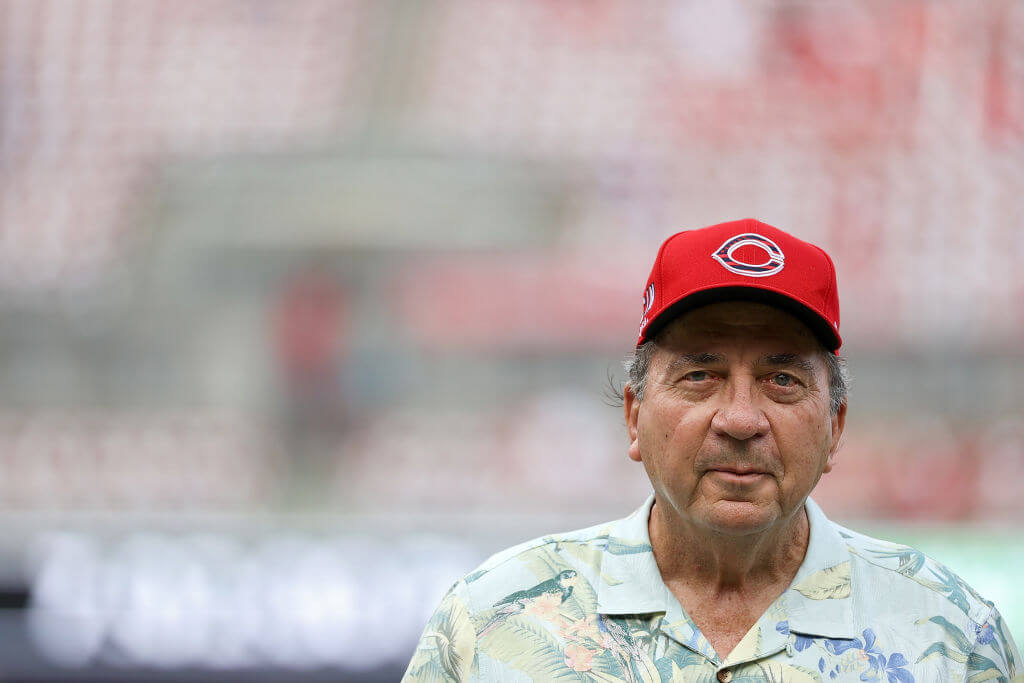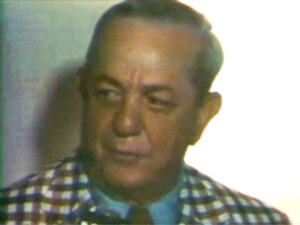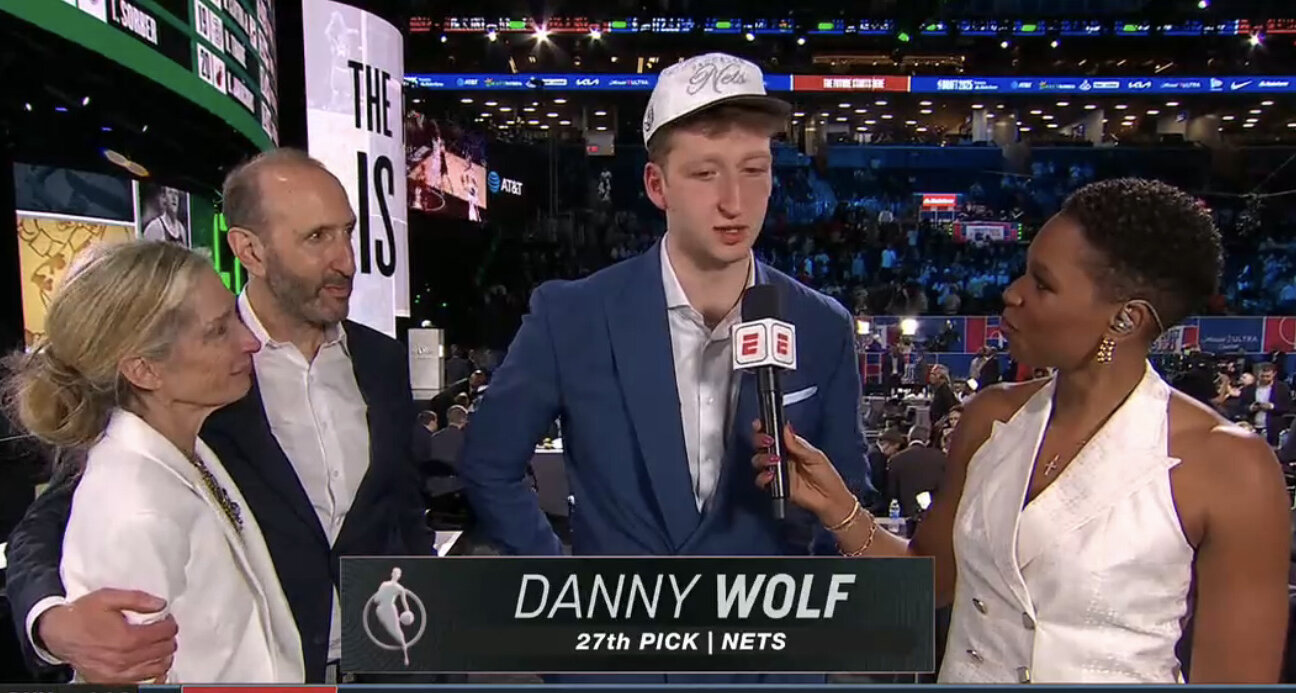Hall of Fame catcher Johnny Bench apologizes for antisemitic comment
The Reds legend made the off-hand remark about late Jewish baseball executive Gabe Paul

Johnny Bench in 2021. Photo by Dylan Buell/Getty Images
What began as a tribute to a late Jewish baseball executive ended with Hall of Fame catcher Johnny Bench facing accusations of antisemitism.
The Cincinnati Reds invited Bench, 75, to a pregame ceremony Saturday intended to celebrate Gabe Paul, the team’s general manager in the 1950s, who along with two other Reds legends was being inducted into the franchise’s Hall of Fame. Paul, who died in 1998, was represented by his daughter, Jennie Paul.
In addition to building a formidable lineup during his tenure, Paul signed the team’s first Black player, and Jennie Paul connected his Jewish identity to his advocacy for other minorities.
“I don’t know if many of you know that he was Jewish,” she said. “He was a very big proponent for the underdog because he was an underdog himself. He went into the Latin leagues and the Negro leagues and he signed as many minority players as he could, which strengthened the Reds.”
That set up Bench’s comment, which came during MLB hit king Pete Rose’s turn to speak.
Passed ball
Rose noted that Paul — who died in 1998 — signed him out of high school in 1960 for $600 a month, to which Jennie Paul quipped from her seat, “That cheap — never mind.”
Then Bench chimed in: “He was Jewish.” Only some people in the audience laughed, according to The Athletic’s C. Trent Rosecrans, who was present.
When Rosecrans asked Jennie Paul about the comment afterward, she said she hadn’t heard it.
“Johnny came up to me and said, ‘Were you offended?’ I was like, ‘For what?’” she told Rosecrans. “I didn’t even hear him say that. I suppose if I had heard him say that I might have said something, but I didn’t even hear him say that.”
Major news outlets, including The Athletic and the Cincinnati Enquirer, characterized the comment as antisemitic.
The off-hand comment disappointed Jewish fans of the catcher, who is widely viewed as one of the best two or three hitting backstops in Major League history.
As someone who is a lifelong fan of Johnny Bench, this made me sad https://t.co/OE7m1df9yL
— Kristi 🤍 (@MsKristi5) July 16, 2023
But others were willing to give him a pass, given the context of the remark.
“My take….he made a stupid attempt at humor,” wrote baseball superfan Simmy Cohen on Twitter. “He probably realized he was wrong as soon as he said it. Hopefully he acknowledges the mistake, apologizes, and everyone should forgive and move on. Not a big deal.”
My take….he made a stupid attempt at humor. He probably realized he was wrong as soon as he said it. Hopefully he acknowledges the mistake, apologizes, and everyone should forgive and move on. Not a big deal. https://t.co/2liUB2zP4v
— jewboy media (@simmy_cohen) July 16, 2023
Bench did apologize.
“I recognize my comment was insensitive,” Bench said in a statement shared by the Reds on Sunday. “I apologized to Jennie for taking away from her father the full attention he deserves. Gabe Paul earned his place in the Reds Hall of Fame, same as the others who stood on that stage, I am sorry that some of the focus is on my inappropriate remark instead of solely on Gabe’s achievement.”
A life in baseball

Born in 1910 in Rochester, New York, to Ukrainian Jews who fled the czarist pogroms, Paul’s baseball life began at age 10 — with a job as a batboy for his hometown minor league team — and spanned seven decades. According to The New York Times, Paul bought, sold and traded more than 500 players over the course of his career with four Major League teams.
From the very beginning, he used his creativity — and ocassionally mischievousness — to great effect. As a batboy, his manager instructed him to swap in freezer-chilled baseballs when the team had a lead in the late innings. And in 1957, as Reds general manager, Paul enlisted local newspapers in a plot to swing All-Star game voting by printing pre-filled ballots in the sports pages.
Despite never winning a pennant in his first 20 years as a general manager — though the Reds did win a year after he left with a roster he largely assembled — Paul was known to hold onto a job once he had it. “I want to stand next to Gabe Paul when they drop the atomic bomb,” said David Lefevre, another baseball lifer who tried to buy the Cleveland Indians.
Eventually he went to work for George Steinbrenner as the New York Yankees’ general manager, and won a World Series with them in 1977.
“Baseball men like Gabe,” Enquirer sports editor Lou Smith once wrote, according to a profile of Paul published in the Society for American Baseball Research. “That’s his chief characteristic.”
According to Jennie Paul, her father did not raise his children Jewish, ceding their religious upbringing to his wife Mary, who was Episcopalian.
And while he was not religiously observant, his Jewish identity still influenced Paul’s trajectory, preventing him from seeking the commissionership in the 1960s, Jennie Paul said. He thought that he wouldn’t be voted in because he was Jewish, she said, and that even if he were, he’d be discriminated against.
“It did follow him his whole baseball career,” Jennie Paul told reporters after the ceremony Saturday, “because a lot of people didn’t know he was Jewish.”























